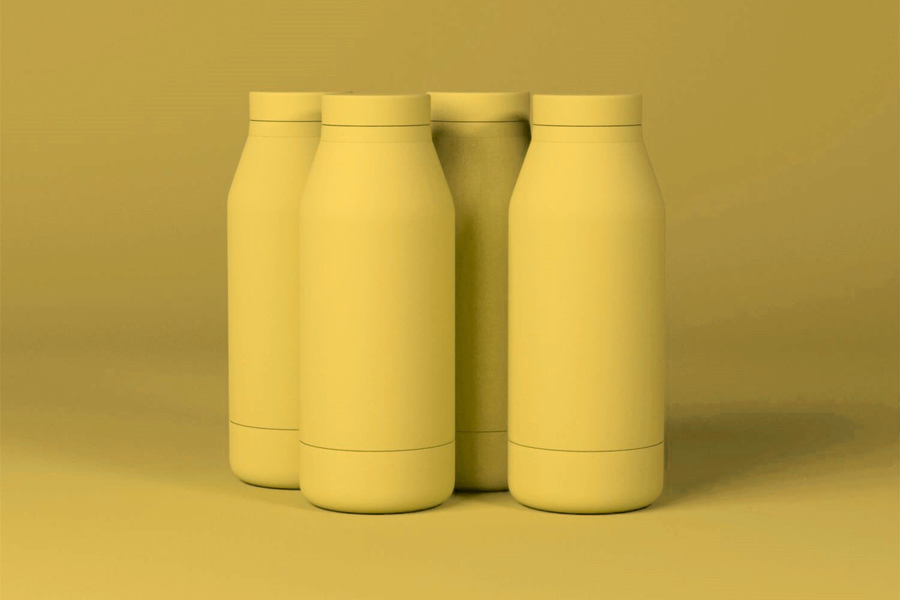Costco’s Kirkland Signature. Walmart’s bettergoods. Target’s Good & Gather. Private label has grown far beyond its “generic” roots, and a new study by Numerator makes it clear that we are entering the golden era of store brands.
Based on surveys from over 21,000 verified private label buyers and data from more than 150,000 US panelists, this report offers a deep dive into how shoppers perceive private label and what it means for FMCG brands.
Here are top insights every brand and retailer should know.
1. USD8.7 billion is at risk for national brands.
If just 10% of light private label buyers become heavy private label buyers, national brands could lose USD8.7 billion in annual spend.
FMCG takeaway: The stakes are real and rising. Brands must defend their relevance given that shoppers are open to cross-purchasing private label.
2. Price gaps are widening.
Private label products now cost USD1.81 less per unit on average than national brands — a widening gap that makes trading down (or “trading across”) more compelling for value-minded shoppers.
FMCG takeaway: If the price delta keeps growing, your innovation and performance narrative must grow with it.
3. Private label is practically universal.
99.9% of US households now purchase private label products. That is full penetration in grocery, and 98% in health and beauty and household goods.
FMCG takeaway: National brands compete against every store’s homegrown alternative.
4. Premiumization is changing the game.
While value perception drives private label adoption, one-third of buyers also view these products as trustworthy, and nearly 20% call them “high quality” or “premium.” Shoppers are trading up inside private label.
FMCG takeaway: Defend your value story with innovation and superior ingredients or risk being replaced by the retailer’s premium tier.
5. Category white space still exists — especially in general merchandise.
Trust in private label is sky-high in consumables (like grocery and health and beauty), but still low in categories like toys, electronics, office supplies, and tools.
FMCG takeaway: Private label has conquered the pantry, but trust has not yet translated to general merchandise. Expect a wave of experimentation in these white-space categories — and brands should prepare their defenses now.
6. Packaging is a silent power play.
According to the study, better packaging directly lifts perceived quality. Clean, modern design and clear product benefits increase private label’s “premium” perception, often without changing the actual product.
FMCG takeaway: More than just aesthetics, packaging is a competitive weapon. For brands and retailers, investing in design is essential to driving shelf conversion and trust.
7. Awareness doesn’t diminish trust.
27% of shoppers didn’t even realize they were buying private label, but those who did were more likely to describe their purchases as high value.
FMCG takeaway: Don’t assume store-brand status hurts appeal. In fact, authenticity and aligning with retailer trust can boost credibility.
8. Trust in retailers equals trust in private label.
Club and grocery retailers have the most trusted private labels, with Costco’s Kirkland and H-E-B’s Hill Country Fare topping the charts. Trust in the store experience correlates directly with perceived product quality.
FMCG takeaway: For private brands, customer service and the in-store experience are just as important as product quality.
9. Promotions work but depend on shopper type.
BOGO promotions boost spend 21% overall, but loyal private label shoppers respond more to quantity-based deals (e.g., buy 3, get 1). The promo strategy must match the loyalty tier.
FMCG takeaway: One-size-fits-all promotions won’t work. Tailor trade plans based on shopper behavior and loyalty type.
To outmaneuver private label, national brands should focus on private labels’ blind spots.
- Lead with innovation and premium offerings in categories in which private labels lack traction or presence.
- Meet elevated shopper expectations in moments that demand quality, trust, or expertise — spaces where private labels can’t easily compete.
- Differentiate through unique product benefits and experiences that store brands aren’t equipped to deliver.
Want to turn these insights into action? Bring Kantar’s experts to your organization. Get in touch.

